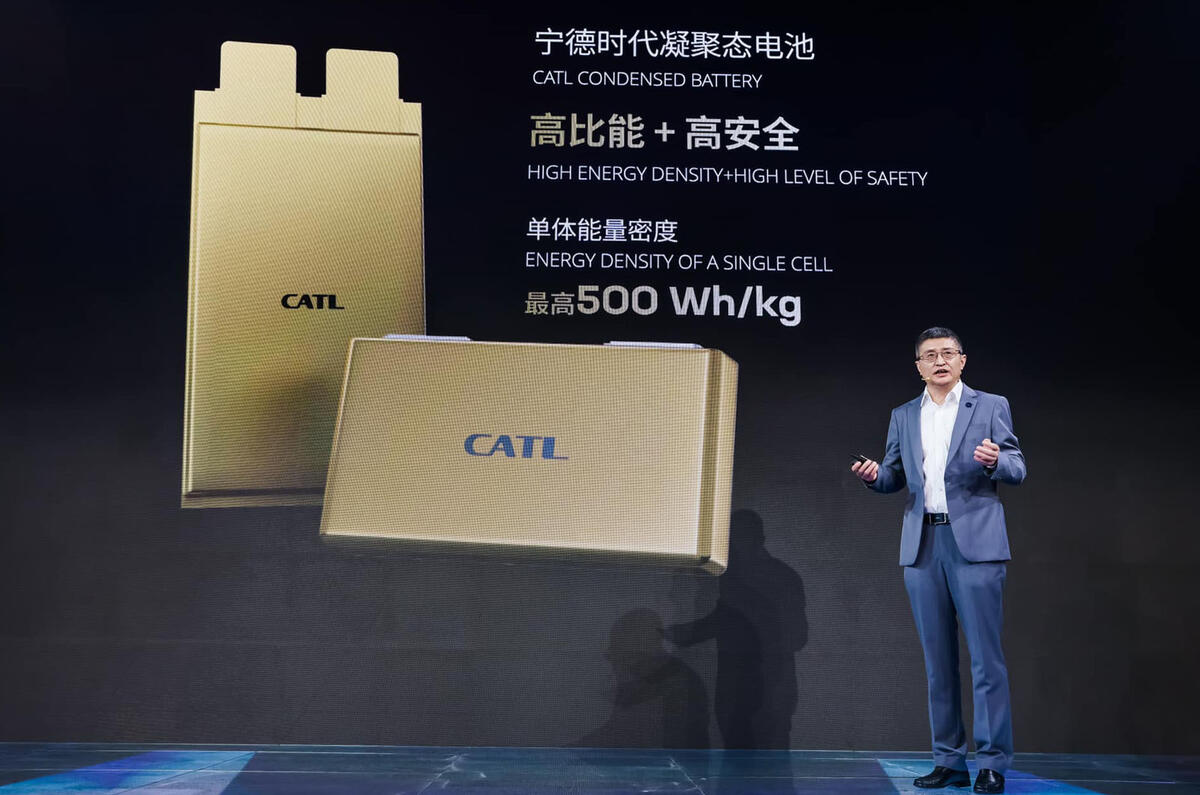Chinese battery giant CATL has launched a radical new type of cell with an energy density of 500Wh per 1kg, which could enable electric cars to use far lighter batteries and offer longer ranges.
It represents a significant advance in battery technology: the Panasonic 2170 cells used in the Tesla Model 3 are widely reported to have a density of around 260Wh per 1kg, almost half that of the new ‘condensed’ units. CATL’s Qilin battery, which recently entered mass production, has a maximum density of 255Wh per 1kg.
An “automotive-grade” version of the new condensed cells will enter mass production by the end of this year, according to the Chinese manufacturer. Initially, the focus is on trialling the new technology in an aviation context. CATL says the new packs could enable the first electric airliner.
"Meeting customers' requirements is the core driving force that drives technological innovation for CATL," said chief scientist Wu Kai.
The new technology could yield 100kWh battery packs weighing just 200kg, a significant reduction compared with current cells. For comparison, the 83.7kWh lithium ion battery pack fitted to the Audi E-tron GT weighs 630kg.
![]()
Smaller, lighter battery packs open up a world of opportunities for electric car makers, creating the potential for tightly packaged urban EVs with longer ranges and lightweight sports cars, for example, and across all segments could make for a reduction in ride height and a boost in interior space.
CATL was the world’s leading supplier for electric car batteries in 2022, according to South Korean research firm SNE research. The Chinese manufacturer sold 165.7GWh of batteries between January and November last year, tripling the output of BYD.
It has several partnerships with EV manufacturers, including BMW (which it will supply cylindrical cells to from 2025) and Ford (which will licence CATL’s lithium-iron-phosphate technology to build cells in Michigan, US).
As such, the new condensed cells could be destined for any number of models. The initial run, however, is most likely to be used in low-volume luxury cars, with prices expected to be high as production begins to scales up.







Join the debate
Add your comment
"Prismatic Lithium-ion", as they're flat panels instead of cylinders they have better cooling so they can charge faster and be packaged better. Interested Engineering has an article on the design/engineering of them.
I get paid more than $200 to $400 per hour for working online. I heard about this job 3 months ago and after joining this I have earned easily $30k from this without r4 having online working skills . Simply give it a shot on the accompanying site…
Here is I started.…………>> www.jobsrevenue.com